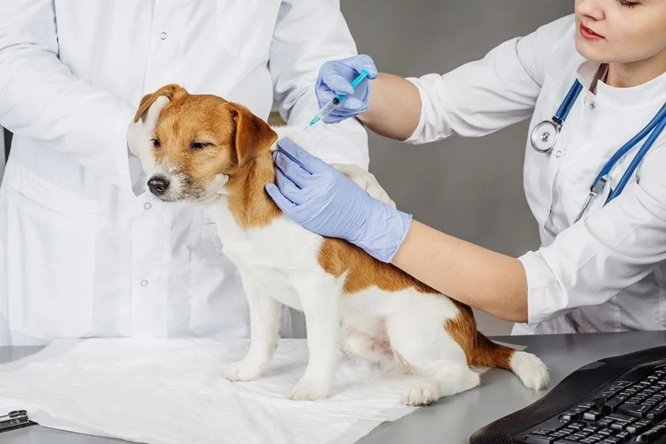You care deeply about your pet’s health. Vaccinations and preventive care are essential for keeping your pet safe and healthy. At any animal hospital in San Antonio, TX, general veterinarians focus on protection and prevention. You will help your pet avoid diseases and enjoy a long life with regular care. Vaccines shield against common diseases that threaten their well-being. These preventive measures are more effective than waiting until after illness strikes. You will not only be addressing current health but also preventing future issues. Your veterinarian will guide you through essential vaccines and personalized care plans to keep your pet healthy. With simple steps, you can protect your loyal companion and offer them a vibrant, healthy life. Through understanding and commitment, you create a safe environment for your pet. Working closely with your veterinarian, you will ensure your pet receives the best care possible.
Why Vaccinations Matter
Vaccinations protect pets from serious diseases. They work by preparing your pet’s immune system to fight off specific infections. Common vaccines for dogs include those for rabies, distemper, and parvovirus. Cats often receive vaccines for feline leukemia, rabies, and calicivirus. By keeping up with vaccines, you reduce the chance of outbreaks and protect other animals in your community.
Creating a Preventive Care Plan
Preventive care goes beyond vaccinations. It includes regular check-ups, dental care, and parasite control. During check-ups, your veterinarian monitors your pet’s weight, behavior, and overall health. Dental care prevents gum disease and other oral issues. Parasite control protects against fleas, ticks, and worms. Each element of preventive care plays an important role in keeping your pet healthy.
Essential Vaccines for Pets
Vaccines vary depending on your pet’s age, breed, and health status. Your veterinarian will recommend a schedule based on these factors. Below is a table of common vaccines for dogs and cats:
| Pet Type | Core Vaccines | Non-Core Vaccines |
|---|---|---|
| Dogs | Rabies, Distemper, Parvovirus | Lyme, Bordetella |
| Cats | Rabies, Feline Leukemia, Calicivirus | FIV, Chlamydophila |
Regular Check-Ups Are Important
Routine veterinary visits catch health problems early. Early detection leads to better treatment outcomes. Your veterinarian checks for signs of illness and offers advice on nutrition and exercise. Regular visits also build a trusting relationship between you, your pet, and the veterinarian.
Dental Care for Pets
Dental health is often overlooked but affects your pet’s overall wellness. Without regular cleaning, pets develop tartar and gingivitis, leading to pain and infection. Brushing your pet’s teeth and scheduling professional cleanings prevent these issues and improve quality of life.
Parasite Control
Fleas, ticks, and worms are more than nuisances. They carry diseases that can harm your pet. Your veterinarian will recommend preventive treatments to protect your pet from these parasites. Regular use of these treatments ensures your pet stays healthy and comfortable.
Importance of Spaying and Neutering
Spaying and neutering offer behavioral and health benefits. These procedures reduce the risk of certain cancers and infections. They also help control the pet population, preventing unwanted litters. Talk to your veterinarian about the best timing for your pet.
Working with Your Veterinarian
To ensure your pet gets comprehensive care, maintain regular contact with your veterinarian. They are your partner in keeping your pet healthy. They provide guidance and answer questions you have about your pet’s health. Trust their expertise and work together to follow the best practices for your pet’s well-being.
For more information on preventive care, visit the American Veterinary Medical Association website.
Providing the best care for your pet requires planning and commitment. Vaccinations, routine check-ups, dental care, and parasite control are key. By prioritizing preventive care, you protect your pet and keep them happy and healthy for years to come.



